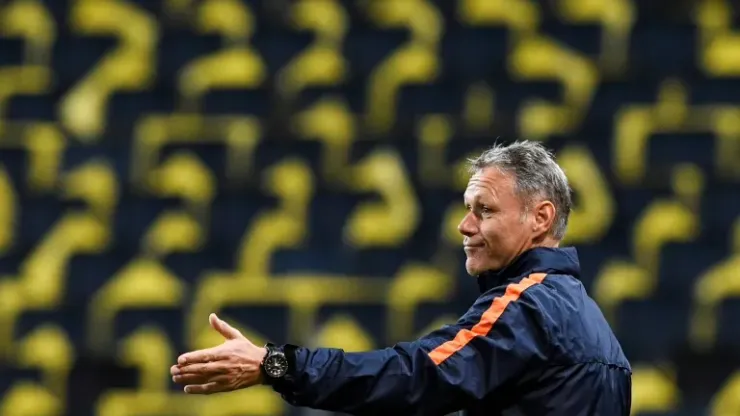Zurich (AFP) – FIFA’s plans to use video refereeing during the 2018 World Cup in Russia will be a positive development in football, former Dutch star Marco Van Basten insisted on Thursday.
“It helps football a lot, it’s good for the honesty,” Van Basten told AFP after a workshop organised at FIFA headquarters by the International Football Association Board (IFAB), which determines the laws of the game.
“It should be really used in the 2018 World Cup, it’s our aim, but it’s still in a testing phase and we have still a lot of challenges,” continued Van Basten, who is responsible for developing the technology for FIFA.
For Van Basten, as a player “once you get used to it (video), you immediatly miss it when you don’t have it, and that is the strength of this project”.
Video assistance was introduced to support referees for the first time in a FIFA competition at the Club World Cup in Japan in December. The four areas covered by the video replay official were goals, penalties, red cards and cases of mistaken identity.
It was also used without problem during a France versus Spain international last March and is currently being tested at the U20 World Cup in South Korea.
It will feature during the Confederations Cup in Russia from June 17 to July 2, which will act as a test for next year’s World Cup.
“The use of video refereeing will only be used in the event of an obvious mistake (in refereeing),” said former international referee David Elleray, who is in charge of the technology at IFAB.
“Thus recently in a match in the Netherlands, the referee gave a red card to the last defender who pulled a striker by the jersey. Video refereeing showed that the striker had previously pulled the defender’s jersey and the referee therefore reversed his decision,” added Elleray.
“More than 25 countries are closely following this technology and 15 have already started to test it. Germany will introduce it next season for all Bundesliga matches and Italy plan to do likewise for Serie A,” added IFAB secretary Lukas Brud.
Several questions need to be ironed out, notably whether to show on giant screens the images used by the video referees.
“There are arguments for and against, the decision will be taken by the Board in March 2018,” said Elleray, adding that they wanted to avoid interrupting the flow of the game.
“But accuracy is more important than speed,” he added.
200+ Channels With Sports & News
- Starting price: $33/mo. for fubo Latino Package
- Watch Premier League, Women’s World Cup, Euro 2024 & Gold Cup
The New Home of MLS
- Price: $14.99/mo. for MLS Season Pass
- Watch every MLS game including playoffs & Leagues Cup
Many Sports & ESPN Originals
- Price: $10.99/mo. (or get ESPN+, Hulu & Disney+ for $14.99/mo.)
- Features Bundesliga, LaLiga, Championship, & FA Cup
2,000+ soccer games per year
- Price: $5.99/mo
- Features Champions League, Serie A, Europa League & Brasileirāo
175 Premier League Games & PL TV
- Starting price: $5.99/mo. for Peacock Premium
- Watch 175 exclusive EPL games per season






